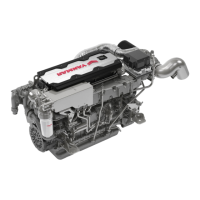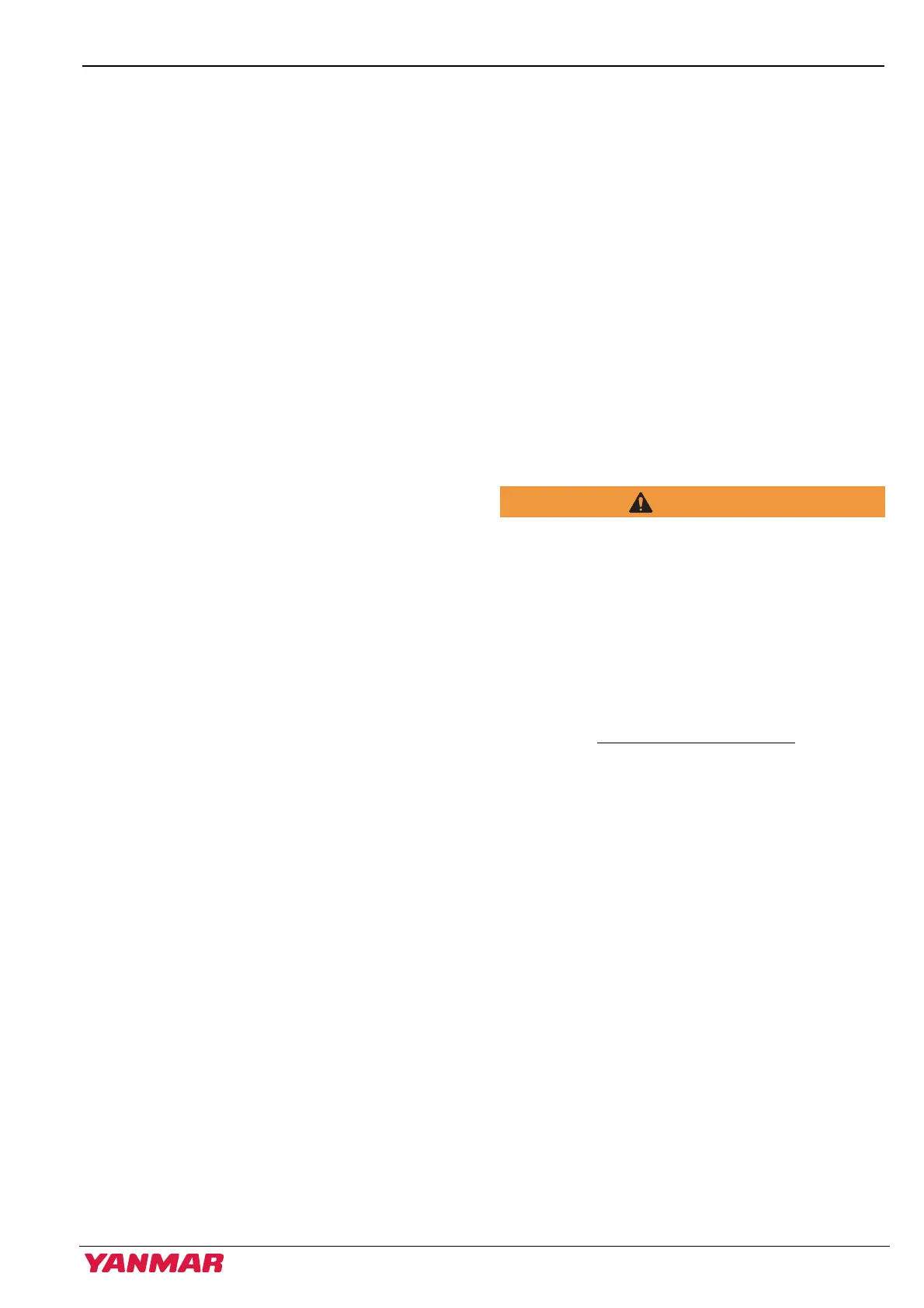BEFORE YOU OPERATE
6LT Series Operation Manual
27
• Even biodiesel fuels that comply with a suitable
standard as delivered will require additional care
and attention to maintain the quality of the fuel in
the equipment or other fuel tanks. It is important
to maintain a supply of clean, fresh fuel. Regular
flushing of the fuel system, and/or fuel storage
containers, may be necessary.
• The use of biodiesel fuels that do not comply with
the standards as agreed to by the diesel engine
manufacturers and the diesel fuel injection
equipment manufacturers, or biodiesel fuels that
have degraded as per the precautions and
concerns above, may affect the warranty
coverage of your engine.
Additional Technical Fuel
Requirements
• The fuel cetane number should be 45 or higher.
• The sulfur content must not exceed 0.5% by
volume. Less than 0.05% is preferred. Especially
in U.S.A. and Canada, Ultra Low sulfur fuel
(:s; 15 ppm) must be used.
• Never mix kerosene, used engine oil or residual
fuels with the diesel fuel.
• Water and sediment in the fuel should not exceed
0.05% by volume.
• Keep the fuel tank and fuel-handling equipment
clean at all times.
• Ash content not to exceed 0.01% by volume.
• Carbon residue content not to exceed 0.35% by
volume. Less than 0.1% is preferred.
• Total aromatics content should not exceed 35%
by volume. Less than 30% is preferred.
• PAH (polycyclic aromatic hydrocarbons) content
should be below 10% by volume.
• Do not use Biocide.
• Lubricity: Wear mark of WS1.4 should be Max.
0.016 in. (400 μm) at HFRR test.
• Low temperature diesel:
EN 590 specifications distinguish different
classes of diesel fuel, identifying the
characteristics of those best suited to low
temperatures.
It is entirely up to the fuel supply companies to
comply with these regulations, which require that
fuels suited to the climatic and geographic
conditions of the various Countries be distributed.
Diesel fuel for low temperatures
Diesel Fuel Standard EN 590 defines different
diesel classes, identifying the characteristics of
those most suitable for use at low ambient
temperatures. It is responsibility of the owner to
obtain fuel suitable for the climatic and
geographical conditions of the various countries.
Winter fuel should be obtained before very cold
temperatures are expected.
Risk of damage
Refueling from drums or tanks can cause
contamination of the diesel fuel, with the
consequent risk of damaging the injection
system; if necessary, perform suitable filtration
or settling of the impurities before refueling.
Failure to comply completely or partially with
these requirements may result in the risk of
serious damage to the engine and may even, on
occasion, invalidate the warranty.

